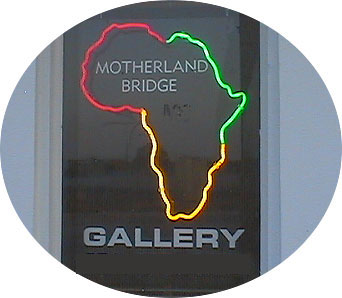Mansharing hurts sisters
January 18, 2004
BY
MARY MITCHELL SUN-TIMES
When most of us don't like the message, we shoot the messenger. So it is
not surprising that my colleague Jim Ritter received some nasty e-mails
after reporting that sex researchers concluded black men are much more
likely than white or Hispanic men to engage in polygamous relationships.
The complete findings are reported in The Sexual Organization of the City,
to be published by University Chicago Press in May.
Researchers looked at four Chicago neighborhoods: Roseland, the lower West Side, Hermosa on the Northwest Side and Lake View on the North Side. Among other trends, researches reported that "21 percent of African-American men had at least two partners at the time of the survey, compared with 6 percent of men overall in Cook County. "We believe our study is one of the first to identify this pattern of long-term polygamy," researchers concluded. Black women didn't need a study to tell them that -- for many reasons -- a lot of black men are doing double duty. The Chicago survey documented what I've referred to in the past as mansharing.
Audrey B. Chapman, a Washington. D.C.-based, therapist, radio talk-show host and author, knows all too well the firestorm this subject brings. In 1982, Chapman wrote Mansharing: Dilemma or Choice because the issue kept coming "across her doorstep." "Women were coming in crying, depressed and unable to function in their daily lives," Chapman said. "The last woman helped me make the decision to write the book. She was suicidal. She thought she was in an exclusive relationship with one man and found out he had two other women on the side. The woman was in love, 32-years-old, with no children, and college educated. She was devastated."
Chapman knew something was going on that nobody wanted to talk about. "I wanted to find out what the deal was, so I held a workshop in the fall of 1981. I expected about 40-50 women, and 130 showed up. They were black, white, Latino. They were Christian. They were Muslim. And they ranged in age from 22 to 70. They all came thinking I had the answer to stop mansharing."
After that conference, Chapman said she received calls from every newspaper in the country, and William Morrow & Company Inc. asked her to put together a coping guide. "It sold very poorly," Chapman said. "Women thought I was advocating mansharing. They were angry for me putting out something they thought would give men even more permission to [have multiple partners]. I kept saying how do you give people permission to do what they are already doing?"
In Mansharing, Chapman urged women to take control of their lives by either accepting or rejecting the relationship: "Many women who participate in obviously shared situations do so with great internal conflicts. They hang in there because they fear being without a man, yet they devote much of their psychic energy to trying to change him and somehow force him to make a commitment to monogamy," Chapman wrote.
"But there is a small group of women who have decided they no longer have the energy to fight reality, and they are opting for shared relationships that they create on their own terms." Amazingly, white women wanted to know more about the topic.
"Black women wanted it to go away," Chapman said. "The sisters are probably the group that are most shared, and they don't want to know about it."
Whether we talk about it or not, our predicament is visible to the rest of world. Black women are least likely to marry, according to the federal Centers for Disease Control and Prevention. That agency reports that by the age of 30, 81 percent of white women and 77 percent of Hispanics and Asians will marry, but only 52 percent of black women will do so.
Without a doubt, black men aren't the only men tipping out on their wives or girlfriends. And women of all races are committing adultery. But the appalling statistics regarding black female-headed households, poverty, fatherless children and the skyrocketing HIV infection rates among black women lead me to believe the negative effects of this lifestyle have diminished the quality of life for a lot of black women. For that reason alone, mansharing must be discussed. "People walk around and pretend it doesn't exist," Chapman said. "But I would advocate a national council for women to address the abuse of sharing men."
You can shoot the messenger. But the message doesn't change.
Copyright © The Sun-Times Company
All rights reserved. This material may not be published, broadcast,
rewritten, or redistributed.


